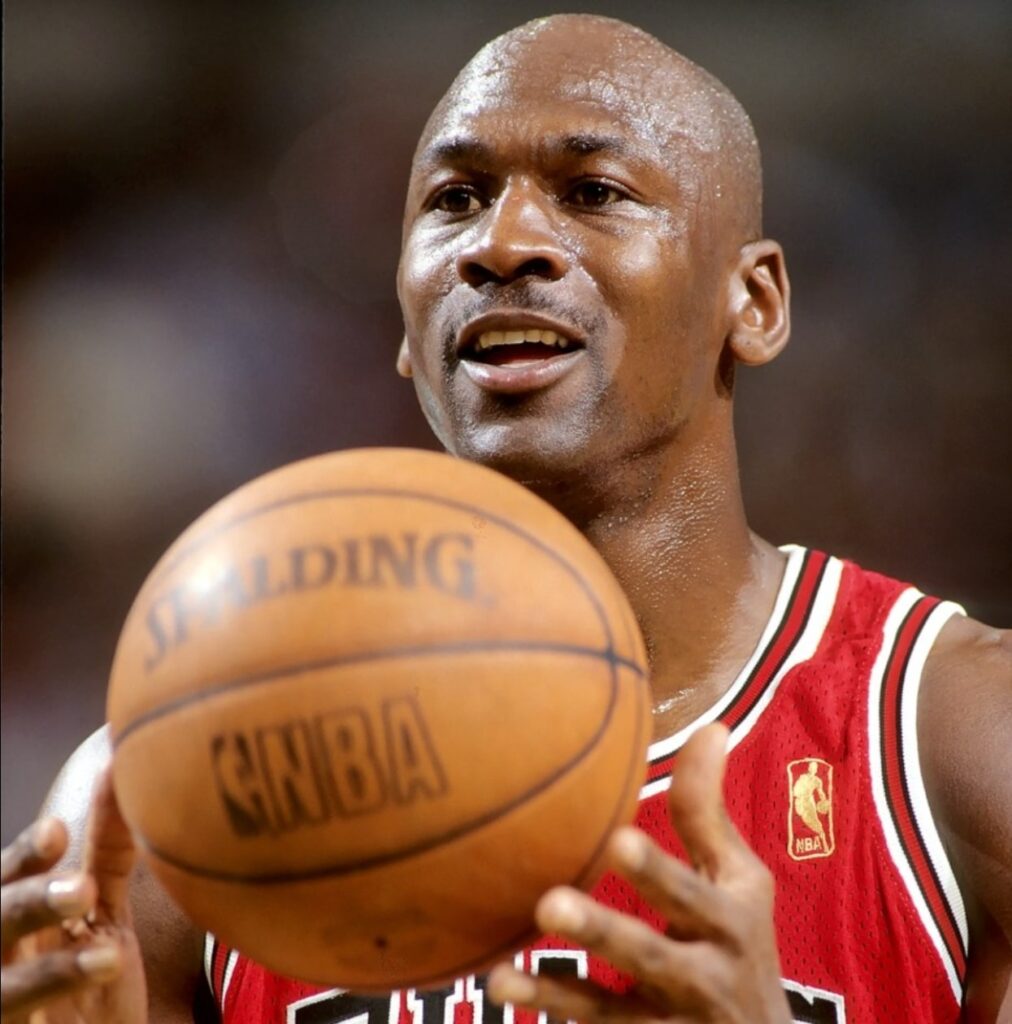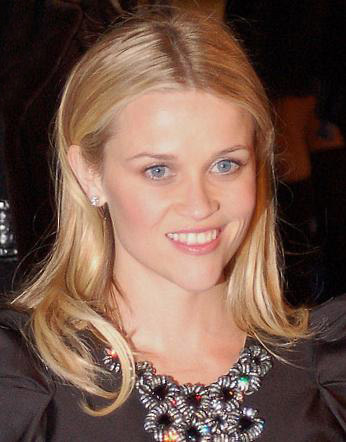
The world of basketball, both on and off the court, recently mourned the passing of Charley Rosen, a figure whose life was as rich and multifaceted as the sport he so passionately loved and meticulously chronicled. Mr. Rosen, a former player, an intense minor-league coach, and a best-selling author of nearly 30 books, died on Saturday, September 13, 2025, in Kingston, N.Y., at the age of 84. His death, caused by thyroid cancer, marked the end of an era for a man described as a “basketball lifer” who left an indelible mark through his insightful observations and compelling narratives.
Mr. Rosen’s journey was characterized by an uncommon blend of experiences, ranging from the competitive intensity of the court to the quiet contemplation of the writer’s study. He was a man who inhabited the game from virtually every angle, bringing a rare depth of understanding to his literary endeavors. His passing serves as an opportune moment to reflect on the various chapters of a life that was, in many ways, a testament to the enduring power and intricate beauty of basketball, a sport he firmly believed to be the best of all.
His contributions transcended mere statistics or game analyses; they offered a profound commentary on the human element within the sport, capturing its triumphs, its scandals, and its inherent drama. From his early days as a talented college center to his later years as a respected columnist, Charley Rosen consistently brought a “prolific pen” to bear on the nuances of basketball, illuminating its complexities for an educated audience, much in the tradition of authoritative journalism.
1. **Early Life and Collegiate Basketball Achievements**Charles Elliot Rosen was born on January 18, 1941, in the Bronx, N.Y., into a household that instilled in him a foundational understanding of social engagement, with his parents being members of the Communist Party. He recounted that they often handed out leaflets at subway and bus stations and held meetings of what he called a Communist “cell” in their apartment. This background, while seemingly distant from the sporting arena, perhaps fostered an observational keenness that would later define his writing.
His engagement with basketball began at the age of nine, becoming more serious by thirteen. As a senior at Theodore Roosevelt High School, he successfully made the varsity team, demonstrating an early aptitude for the game. This passion continued into his college years, where he became a star center at Hunter College in New York City.
During his three seasons at Hunter College, from 1959 to 1962, Mr. Rosen, standing at 6-foot-8, distinguished himself by setting school records for both scoring and rebounding. He also earned most valuable player honors each season, a clear indication of his dominance on the court. Reflecting on his freshman year, he noted in his memoir “Crazy Basketball” that he “overcompensated for my basic shyness and confusion by being mindlessly aggressive,” suggesting a complex interplay between his internal temperament and his on-court persona. Even decades later, he remained in the top 10 in those statistical categories, cementing his place in Hunter College’s basketball history.
Read more about: Shaq’s Colossal Impact: How the Unstoppable Force Made NBA History (and Beyond) Look Small
2. **Semiprofessional Play and the Genesis of a Coaching Career**After graduating from Hunter College in 1963 with a bachelor’s degree in physical education, Charley Rosen briefly extended his playing career into the semiprofessional ranks. He played for the Scranton Miners in the old Eastern Professional Basketball League, an experience that further deepened his understanding of the game from a competitive, albeit less glamorous, perspective. These early experiences provided a grounded, firsthand knowledge of basketball’s gritty realities, which would later inform both his coaching and his writing.
His transition into coaching began modestly but purposefully. He coached the boys’ basketball team at a junior high school in Middletown, N.Y., taking his first steps in leading and developing players. This period of early coaching was not only about strategy and skill development but also about cultivating a unique coaching philosophy, one that blended intensity with a keen understanding of the sport’s human dynamics.
Mr. Rosen also took on the men’s head coaching role at Bard College during the 1979-80 season. This particular season, which saw his team achieve a 1-16 record, became the subject of his book “Players and Pretenders: The Basketball Team That Couldn’t Shoot Straight” (1981). People magazine notably characterized this memoir as a “funny, tender ‘Zen and the Art of Basketball Losing,’” highlighting his ability to infuse personal experience with wit and pathos, even in recounting a challenging season. This venture into documenting his coaching life marked a significant step in his evolution as an author.

3. **The Intense Coaching Style: A “Street Fighter” on the Sidelines**Charley Rosen’s coaching career, particularly in the Continental Basketball Association (C.B.A.), was marked by an intensity that bordered on wildness. He was not merely a strategist but an emotional force on the sidelines, known for his fiery demeanor and confrontational style. This aspect of his personality led Chronogram, a Hudson Valley media website, to describe him in 2007 as an “odd mix of street fighter and Bodhisattva, with a dash of vintage Deadhead,” capturing the eclectic blend of his public persona.
His passion for the game often manifested in memorable, and sometimes controversial, incidents. He gained a reputation for taunting referees and for accumulating an astonishing number of technical fouls in one season. The league fined him $1,700 for these infractions, which equated to 68 technicals at a cost of $25 each. This record speaks volumes about his unbridled commitment and his willingness to challenge authority in pursuit of what he believed was right on the court.
A particularly vivid incident occurred in 1989 in Cedar Rapids, Iowa, where Mr. Rosen took a swing at a rival coach. He accused the opposing coach of telling his team to employ a full-court press late in a game that was already decided. This outburst led to his arrest for assault and resisting arrest, resulting in him spending an hour in a jail cell until players contributed to his $400 bail. He later conceded his actions were indefensible, telling Sports Illustrated in 1991, “I got caught up in all that macho B.S., that basketball is life and death.” Such episodes highlighted his deeply competitive nature and the emotional toll the game could sometimes take. He eventually coached the SUNY New Paltz Hawks women’s basketball team from 1993 to 1995, but by then, his focus had largely shifted towards his prolific writing.
4. **The Genesis of a Prolific Pen: Early Novels and Memoir**While Charley Rosen’s basketball journey began as a player and coach, his “prolific pen” soon became his most enduring contribution to the sport. His early literary endeavors showcased his versatility, moving seamlessly between fiction and nonfiction, all imbued with his deep understanding of basketball. These initial works laid the groundwork for a career that would ultimately see him author nearly 30 books, most of them centered around the game.
One of his earliest fictional explorations of the sport was the novel “Have Jump Shot, Will Travel,” published in 1975. This title hinted at the journeyman nature of many basketball lives, a theme he would revisit throughout his career. His firsthand experience coaching in the Continental Basketball Association found its fictionalized expression in “The Cockroach Basketball League” (1992), offering readers a unique, insider’s view of the minor-league circuit.
In 2011, Mr. Rosen released “Crazy Basketball: A Life In and Out of Bounds,” a memoir that largely detailed his journeyman experience in the C.B.A. This work provided an intimate look at the challenges and eccentricities of life in professional basketball’s lower tiers, blending personal narrative with broader reflections on the sport. His ability to translate his lived experiences into engaging prose quickly established him as a distinctive voice in basketball literature, setting the stage for his later, more celebrated works.
5. **A Kindred Spirit: The Enduring Friendship with Phil Jackson**Central to Charley Rosen’s life and career was his profound friendship with Phil Jackson, the legendary Hall of Fame coach. Their bond, forged in the crucible of competitive basketball, was described as a relationship between “kindred spirits.” This connection extended beyond professional collaboration, blossoming into a deep personal understanding that influenced both men.
Their friendship began in a rather unconventional setting. In 1973, while on assignment for Sport magazine, Mr. Rosen attended a postgame party at a loft above an auto repair shop in Manhattan, where Mr. Jackson, then a player for the Knicks, was residing. This initial encounter sparked a quick connection, leading to a friendship that would span decades and many shared experiences.
Over the years, their bond deepened, with Mr. Rosen recalling playing hundreds of one-on-one games with Mr. Jackson at the Y.M.C.A. in Woodstock, N.Y., where both lived for a time. Mr. Rosen’s insightful observations of Mr. Jackson, as captured in “More Than a Game,” revealed a man beneath a “peaceful hippie smile” who was a relentless competitor but “was never possessed by the Vince Lombardi ethic that equated losing with dying.” This nuanced perspective underscored the depth of their mutual respect and understanding, forming the bedrock of their enduring relationship.

6. **Collaborating with a Legend: Literary Partnerships with Phil Jackson**The intellectual and personal synergy between Charley Rosen and Phil Jackson naturally extended into significant literary collaborations, cementing their shared vision of basketball. Their joint projects offered unique insights into Jackson’s coaching philosophy and career, often through Rosen’s interpretive lens, demonstrating the power of their combined perspectives.
Their first collaboration, “Maverick: More Than a Game” (1975), was an autobiography of Phil Jackson. This early work provided a window into Jackson’s experiences as a player, enriched by Rosen’s narrative craftsmanship. The book served as an initial testament to their ability to translate on-court dynamics and personal journeys into compelling prose, marking the beginning of a fruitful partnership.
They reunited for another significant work, “More Than a Game” (2001), a memoir told in alternating chapters by both men. This collaborative effort was a remarkable exploration of their intertwined lives and coaching philosophies, notably detailing Mr. Jackson’s distinctive use of the triangle offense. The book provided a comprehensive look at the strategic and spiritual dimensions of Jackson’s success, filtered through the intimate dialogue of two men who lived and breathed basketball. These collaborations not only enhanced their personal bond but also offered invaluable contributions to the literature of the sport, particularly regarding the art of coaching and the psychology of team dynamics.

7. **Critical Acclaim for Literary Fiction – “The House of Moses All-Stars”**Beyond his early ventures into sports narrative, Charley Rosen solidified his reputation as a formidable literary voice with works that garnered significant critical recognition. His novel, “The House of Moses All-Stars” (1996), stands as a testament to his ability to weave compelling fiction around the sport he cherished. This work was not only a best-seller for The New York Times but was also distinguished as a Times notable book of the year, signaling its profound impact on both readers and critics.
The narrative of “The House of Moses All-Stars” immerses readers in the captivating journey of a touring Jewish basketball team in 1936. The team barnstorms across the country, embarking on their adventures in a hearse emblazoned with a Star of David on its side. This vivid and somewhat audacious premise allowed Mr. Rosen to explore themes of identity, struggle, and the unique challenges faced by minority groups in a specific historical context.
Through the lens of this basketball team, Mr. Rosen offered a rich tapestry of American life during the Depression era, blending historical detail with engaging character development. The critical acclaim for this novel underscored his talent for crafting narratives that transcend mere sports reporting, elevating his fiction to a broader cultural commentary that resonated deeply with a diverse readership.

8. **Delving into Scandals – “Barney Polan’s Game” and “Scandals of ’51″**Charley Rosen’s literary prowess extended to his incisive examinations of basketball’s more troubled chapters, particularly the infamous college basketball scandals. His novel, “Barney Polan’s Game: A Novel of the 1951 College Basketball Scandals” (1998), further cemented his status as a best-selling author and was also recognized as a New York Times notable book of the year. It even earned a spot on The New York Times Book Review Editor’s 1998 Recommended Summer Reading List.
This work plunged into the notorious point-shaving schemes that ensnared players from seven schools, including the City College of New York, providing a fictional yet deeply researched account of a dark period in collegiate athletics. Mr. Rosen’s narrative approach allowed him to explore the moral ambiguities and human vulnerabilities that underpinned these illicit activities, offering a nuanced perspective on the pressures faced by young athletes.
Notably, “Barney Polan’s Game” was a fictional treatment of a subject Mr. Rosen had previously tackled as a historian in “Scandals of ’51: How the Gamblers Almost Killed College Basketball” (1978). The distinction between his factual and fictional accounts was highlighted by Allen Barra in The New York Times Book Review, who observed that “Rosen the novelist makes clear what Rosen the historian could only suggest: the fog of moral grayness that made the scandals possible.”
This comparative insight underscores Mr. Rosen’s unique ability to utilize both historical reporting and narrative fiction to illuminate the complexities of his chosen subjects. His decision to revisit the 1951 scandals through a novelistic lens allowed for a deeper, more empathetic exploration of the individual and systemic failures that nearly undermined the integrity of college basketball, solidifying his role as a chronicler unafraid to confront uncomfortable truths.

9. **Unmasking Corruption – “The Wizard of Odds”**Mr. Rosen continued his exploration of basketball’s underbelly with “The Wizard of Odds: How Jack Molinas Almost Destroyed the Game of Basketball” (2001). This book chronicled the story of Jack Molinas, a talented former college and N.B.A. player who became a central figure in fixing college games between 1957 and 1961. It represented another meticulous dive into a controversial subject, demonstrating Mr. Rosen’s dedication to historical accuracy combined with a compelling narrative style.
The genesis of this particular project was uniquely personal for Mr. Rosen. Molinas’s brother, Julie, contacted Mr. Rosen after being impressed by his previous books on college basketball scandals. Julie Molinas offered him access to a wealth of personal materials, including scrapbooks, letters, photographs, and transcripts of interviews, for a prospective biography. This unparalleled access provided Mr. Rosen with an intimate window into Molinas’s world, an opportunity he “could not refuse.”
Through these materials, Mr. Rosen was able to construct a portrait of Molinas that went beyond mere statistics or criminal acts. He delved into the psychology of the man, observing early in the book, “For Jack Molinas, the real game was power — taming the unknown, manipulating people, odds and possibilities, making the future dance to his own secret music.” This quote encapsulates Mr. Rosen’s talent for penetrating the surface to reveal the deeper motivations driving his subjects.
“The Wizard of Odds” stands as a significant contribution to basketball literature, not only for its detailed account of a notorious figure but also for Mr. Rosen’s analytical depth. It further underscored his consistent engagement with the ethical dimensions of the sport, showcasing his commitment to exposing the forces that could corrupt its essence while still appreciating the game’s inherent beauty. His comprehensive approach offered readers not just a history, but a profound understanding of the human element in basketball’s darker moments.

10. **The “Foremost Literary Chronicler” and Jackson’s Advocate**By the mid-1990s, Charley Rosen’s reputation as a literary voice in basketball was firmly established. In 1994, The Wall Street Journal notably bestowed upon him the title of basketball’s “foremost literary chronicler,” a testament to his extensive body of work and his unique ability to articulate the nuances of the game. This recognition highlighted the distinct blend of his on-court experience, coaching insights, and formidable writing talent.
His lifelong friend and collaborator, Phil Jackson, echoed this sentiment, telling The Times Herald-Record of Middletown, N.Y., in 2005, that “Writing is Charley’s gift to basketball.” This praise from one of the sport’s most respected figures underscored the profound value placed on Mr. Rosen’s literary contributions, affirming that his impact extended far beyond the traditional roles of a player or coach.
Beyond his published works, Mr. Rosen became a valuable resource for journalists and reporters eager to gain insights into the world of basketball, particularly concerning his shared history with Mr. Jackson in the C.B.A. His firsthand experiences and deep understanding of Jackson’s coaching philosophy made him a sought-after commentator, providing an informed perspective that few others could offer.
Furthermore, Mr. Rosen remained a staunch defender of his friend, even during challenging times. He notably defended Mr. Jackson’s tenure as the president of the New York Knicks from 2014 to 2017. Although this period ended in failure, a sharp contrast to Mr. Jackson’s championship-laden tenures with the Chicago Bulls and the Los Angeles Lakers, Mr. Rosen’s unwavering support highlighted the depth of their friendship and his continued commitment to standing by those he believed in, irrespective of public opinion or outcome.
11. **The Digital Analyst and Basketball’s Essential Qualities**In his later years, Charley Rosen adapted his insightful commentary to the evolving landscape of sports journalism, contributing analyses to digital platforms. He shared his perspectives on basketball through articles published on the Fox Sports and HoopsHype websites, demonstrating his continued engagement with the sport and his ability to reach a contemporary audience. This transition showcased his versatility and enduring relevance in the rapidly changing media environment.
Even as his primary focus shifted towards writing, Mr. Rosen remained deeply rooted in his fundamental love for basketball, often articulating what made the sport so uniquely compelling to him. In a column for the news website Hudson Valley One in 2019, he eloquently listed his reasons for believing that “basketball was the best of all sports.” This reflection offered a concise yet profound summary of his lifelong devotion.
Among the reasons he cited was “The almost continuous action,” which he found unparalleled in its dynamism and excitement. He also emphasized “The exquisite balance between offense and defense,” highlighting the intricate strategic interplay that defines every possession. These elements, in his view, contributed to a game that was always engaging, demanding constant attention and rapid decision-making from all involved.
Mr. Rosen further elaborated on the intellectual demands of the game, noting “Players having to make so many decisions on the run.” He also pointed to the comprehensive skill set required, stating, “Whereas catchers don’t pitch, defensive tackles don’t throw forward passes, every hooper at just about every level of competition needs a certain mastery of all the basic skills — shooting, dribbling, passing and catching passes, cutting, and so on.” These insights solidified his reputation not just as a chronicler, but as a deep thinker who could articulate the very essence of the game he so passionately advocated for.

12. **A Lasting Legacy: The “Basketball Lifer”**Charley Rosen’s journey was that of a true “basketball lifer,” a man who inhabited every facet of the sport with an unwavering intensity and intellectual curiosity. From his early days as a record-setting college center and semipro player to his fiery career as a minor-league coach, and ultimately to his prolific output as an acclaimed author, his life was inextricably woven into the fabric of basketball. He was, in essence, a mentor and chronicler whose voice provided an unparalleled perspective on the game.
Away from the court and the typewriter, Mr. Rosen’s personal life included three marriages, with his final marriage to Daia Gerson lasting until his death. He is survived by his daughter, Alexandra Rosen, and son, Darrell Rosen, from his marriage to Susan Weiss, along with stepchildren and several grandchildren. He made his home in Accord, New York, a place he shared with Phil Jackson for a time, reinforcing the community ties that defined parts of his life.
His passing, though attributed to thyroid cancer, marked the departure of a figure described as an “odd mix of street fighter and Bodhisattva, with a dash of vintage Deadhead” by Chronogram in 2007. This colorful description perfectly encapsulates the eclectic blend of passion, intellect, and unconventional spirit that Charley Rosen brought to every endeavor, particularly his engagement with basketball.
In reflection, Mr. Rosen’s lasting impact resides not just in the nearly 30 books he authored, but in his distinctive voice that continually sought to understand and illuminate the human drama within basketball. He chronicled its triumphs, its scandals, and its inherent beauty with a depth and clarity that earned him the moniker of basketball’s “foremost literary chronicler.” His works provided an extensive context and background, offering multiple viewpoints that enriched the understanding of an educated audience.
Charley Rosen’s prolific pen offered invaluable contributions to the literature of basketball, cementing his place as an authoritative and objective voice. His ability to blend factual information with compelling narrative storytelling ensured that his insights into the game, its players, its coaches, and its darker moments will continue to resonate, securing his legacy as a writer who profoundly shaped how we understand the sport.
The life of Charley Rosen, a man whose passions were as boundless as his talents, reminds us that the stories beyond the scoreboard often hold the most profound lessons. His dedication to basketball, manifest in every role he undertook, has left an enduring literary legacy that invites future generations to delve deeper into the intricate beauty and complex realities of the game he so loved and meticulously chronicled. He was a master storyteller, and his narrative journey through the world of basketball will continue to inspire and inform.








